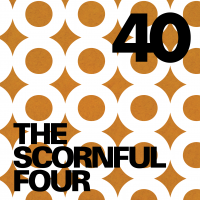“YouTube was intentionally built on infringement," wrote Viacom in a statement released this week. Yesterday, the media giant made public 108 pages of documents detailing its $1 billion suit against YouTube owner Googlethe latest move in a battle that has been raging for roughly three years. You could consider this new four-paragraph public statement to be the abridged version of those complaints: One-hundred odd pages have been knocked out, but the animus hasn't decreased one bit.
“Google bought YouTube because it was a haven of infringement," the statement continues. “Google knew that YouTube's popularity depended on infringing materials with several senior Google executives warning that YouTube was a 'rogue enabler of content theft.' Instead of complying with the law, Google willfully and knowingly chose to continue YouTube's illegal practices."
YouTube released its own statement on the subject, and while the words are less barbed, the approach is no less passionate: “Around the globe, YouTube has become a metaphor for the democratizing power of the Internet and information," the statement opens. Unlike Viacom's letter, this one is attributed to its writer, Zahavah Levine, YouTube's chief counsel. In other words, even on the company blog, this has gone beyond any semblance of civil discourse. It's a matter for the lawyers.
Like the Google Video case in Italy, in which the Italian courts put four Google employees on trial over a video that featured students bullying an autistic classmate, this suit seems to come down who should be held responsible for the content of an open site like YouTubeemployees of the company or those who perform the uploading. According to the ruling in Italy, those who host the content can ultimately be held responsible for it (the minor defendants weren't actually sentenced to jail time).
“Google bought YouTube because it was a haven of infringement," the statement continues. “Google knew that YouTube's popularity depended on infringing materials with several senior Google executives warning that YouTube was a 'rogue enabler of content theft.' Instead of complying with the law, Google willfully and knowingly chose to continue YouTube's illegal practices."
YouTube released its own statement on the subject, and while the words are less barbed, the approach is no less passionate: “Around the globe, YouTube has become a metaphor for the democratizing power of the Internet and information," the statement opens. Unlike Viacom's letter, this one is attributed to its writer, Zahavah Levine, YouTube's chief counsel. In other words, even on the company blog, this has gone beyond any semblance of civil discourse. It's a matter for the lawyers.
Like the Google Video case in Italy, in which the Italian courts put four Google employees on trial over a video that featured students bullying an autistic classmate, this suit seems to come down who should be held responsible for the content of an open site like YouTubeemployees of the company or those who perform the uploading. According to the ruling in Italy, those who host the content can ultimately be held responsible for it (the minor defendants weren't actually sentenced to jail time).

























